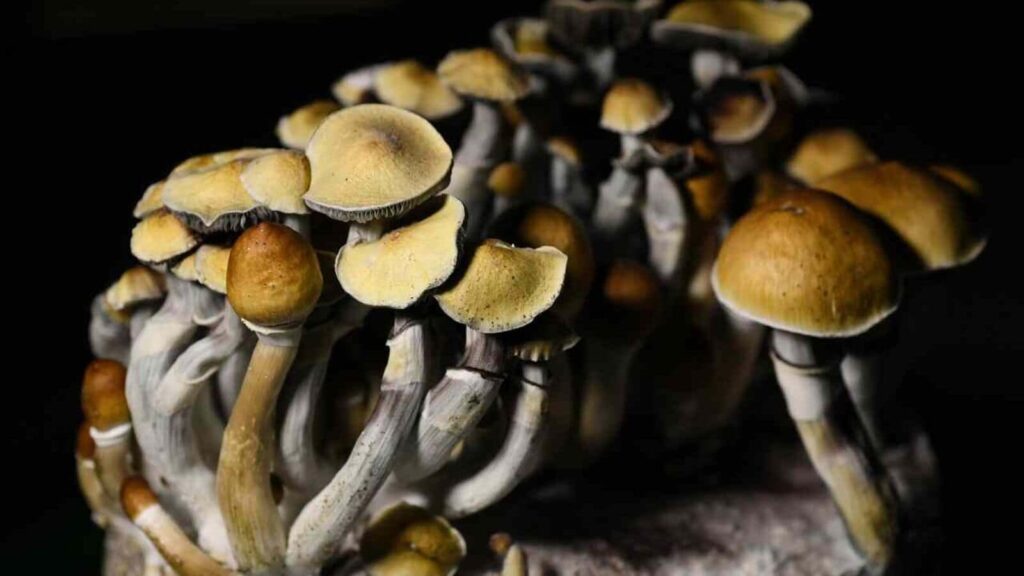Positive data on depression treatment based on a drug related to the psychedelic DMT is breathing life into shares of biotechs working on psychedelic medicines, after years of disappointments.
Just as top Trump administration health officials have begun to show a more receptive attitude to psychedelics, atai Life Sciences and Beckley Psytech said Tuesday that patients with difficult-to-treat depression symptoms who took Beckley’s drug BPL-003 saw improvement in an eight-week trial. Atai is in the process of acquiring Beckley.
Patients on a higher dose of BPL-003 had an average decrease of 11.5 points on a rating scale that tracks depression symptoms. That compared with a 5.8 point drop among patients in the control group, who received a tiny dose of BPL-003.
The companies will need to continue testing BPL-003. But analysts said Tuesday that based on the results, they see the drug eventually hitting $1 billion in annual sales. “The dataset should instill confidence in a $1B+ drug,” Jefferies analyst Andrew Tsai wrote in a research note.
Atai shares were up 24% at midday. Shares of other biotechs working on psychedelic drugs took off as well: Compass Pathwards climbed 13%, while shares of MindMed were up 5.4%.
The Beckley drug, BPL-003, is a nasal spray version of the psychedelic 5-MeO-DMT, a close relation to DMT and other similar psychedelics.
A long list of biotechs have been looking toward psychedelic medicines in recent years. The aim is to find ways to treat neurological conditions like depression and post-traumatic stress disorder that have proven hard to cure with existing medicines.
None have been approved by the Food and Drug Administration so far, though in 2019, Johnson & Johnson received FDA permission to sell a depression medicine called Spravato, which is a derivative of the dissociative anesthetic ketamine.
The field hit a major roadblock last summer, when the FDA rejected an application from a private company called Lykos Therapeutics for approval of a treatment protocol for PTSD that combined use of the drug MDMA with talk therapy.
At the time, analysts said that other psychedelic treatments might be easier to get approved than Lykos’s MDMA treatment, for reasons having to do with the specifics of the Lykos protocol.
Now, the positive data from atai and Beckley’s drug comes as attitudes within the FDA appear to be shifting in favor of psychedelics. In an interview with the reality show fitness expert Jilian Michaels on NewsNation last month, FDA Commissioner Dr. Marty Makary suggested he was very open to approving psychedelic therapies.
“When I listen to the individuals who have tried some of these for real medical conditions – post-traumatic stress disorder, severe refractory depression – people tell me that they believe that psilocybin was successful, was curative, or significantly helped their severe mood disorder,” Makary said. “I’m saying we have to listen to doctors who have these experiences. And this is one of our top priorities at FDA: To listen to doctors, to listen to patients.”
Those comments, and similar rhetoric from Robert F. Kennedy Jr., the U.S. health secretary, point to a potentially friendly attitude among regulators toward BPL-003 and similar medicines.
In the results announced Tuesday, atai and Beckley said that the two higher dose levels of BPL-003 they tested led to “statistically significant improvements” in depression symptoms as soon as one day after treatment.
The companies said that patients were ready to leave the treatment center two hours after receiving the medication on average. Atai noted that patients who take Johnson & Johnson’s Spravato need to stay at their doctor’s office for two hours after taking the medicine, which sets a precedent for a similar protocol.

